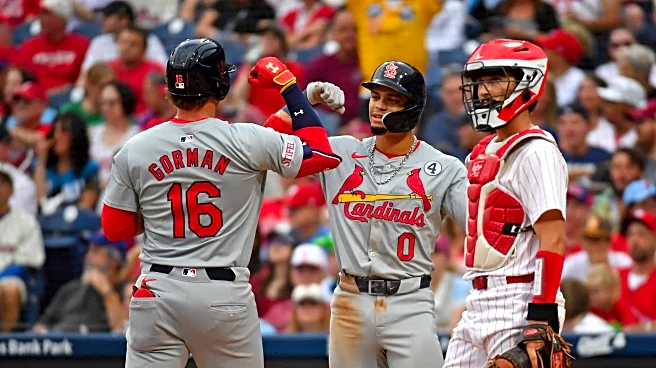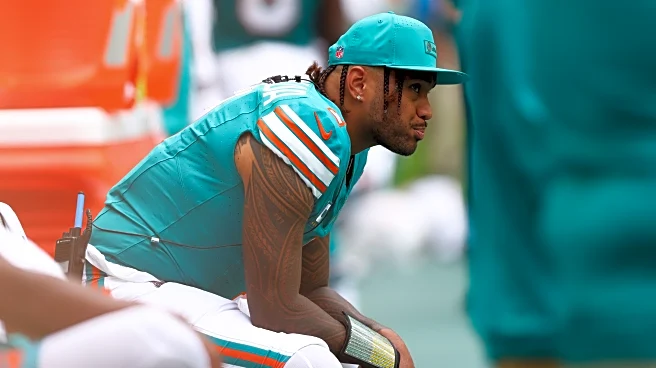What is the story about?
What's Happening?
Federal Reserve Chair Jerome Powell is facing a significant challenge as he considers cutting the central bank's key interest rate, a move that could be perceived as yielding to pressure from the White House. President Trump has been vocal in urging Powell to reduce borrowing costs, arguing that there is no inflation and that a rate cut would lower the government's interest payments on its substantial debt. Powell, however, has indicated that any potential rate cut would be driven by concerns over a weakening economy, rather than political pressure. In a recent speech, Powell noted that economic growth has slowed significantly, and there is a marked decrease in the demand for workers, which could lead to higher unemployment. Despite these concerns, Powell emphasized that the Federal Reserve would proceed cautiously, cutting rates at a slower pace than President Trump desires.
Why It's Important?
The independence of the Federal Reserve is a cornerstone of its ability to manage the economy effectively, free from political influence. Powell's decision-making process is crucial as it impacts borrowing costs for consumers and businesses, influencing economic growth and inflation. A rate cut could stimulate the economy, but if done prematurely, it might exacerbate inflationary pressures. The situation is further complicated by President Trump's threats to remove Fed officials who do not align with his economic views, which could undermine the Fed's independence. The outcome of this situation will have significant implications for U.S. economic policy and the credibility of the Federal Reserve.
What's Next?
The Federal Reserve is expected to make a decision on interest rates at its upcoming meeting in September. Powell and other Fed officials will continue to monitor economic indicators closely, including inflation and employment trends, to determine the appropriate course of action. Meanwhile, political pressure from the White House is likely to persist, potentially influencing the composition of the Fed's governing board if President Trump follows through on his threats to replace certain members. The Fed's ability to maintain its independence in the face of such pressure will be closely watched by economists and policymakers.
Beyond the Headlines
The ongoing tension between the Federal Reserve and the White House highlights broader issues of governance and the role of independent institutions in a democratic society. The Fed's ability to resist political pressure is seen as vital to maintaining economic stability and preventing inflation. This situation also raises questions about the potential long-term impacts on the Fed's credibility and the precedent it sets for future administrations. The balance between political influence and economic expertise will continue to be a critical issue in U.S. economic policy.















